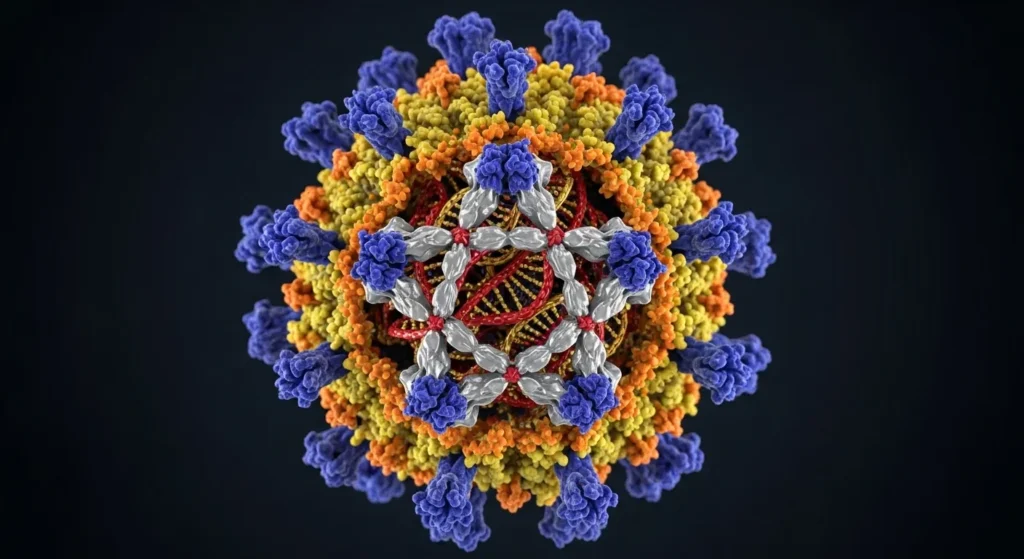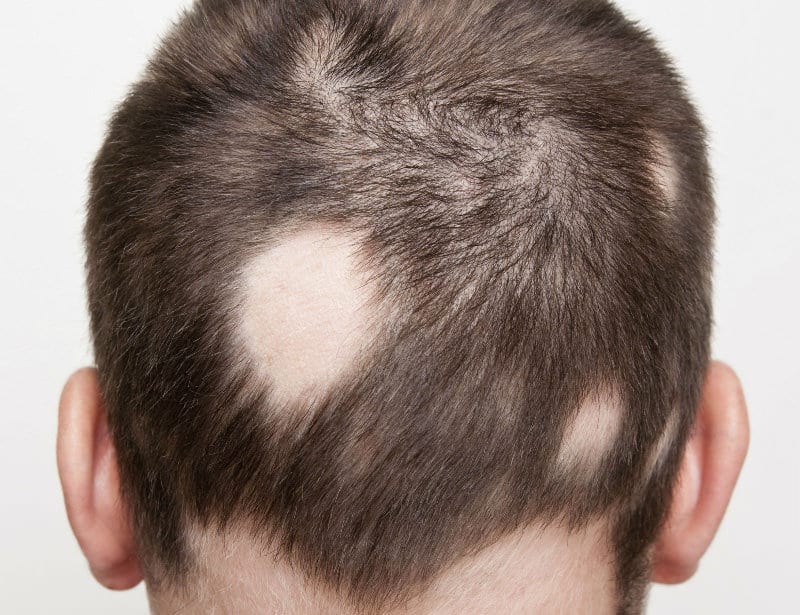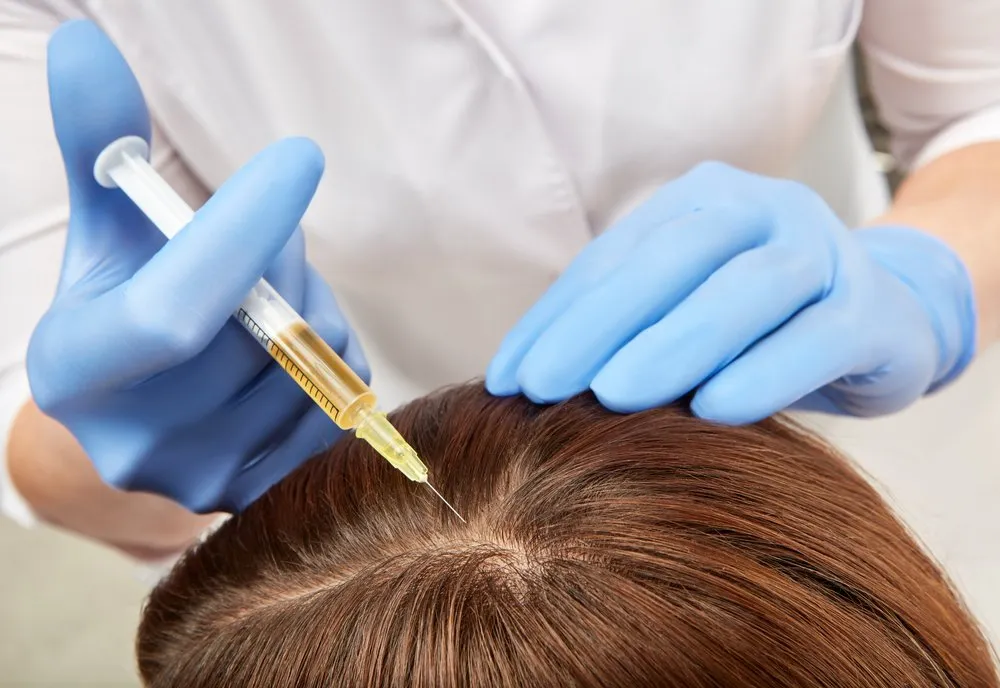Hair loss can be alarming, especially when it follows an unexpected trigger like a herpes outbreak. Can herpes cause hair loss? Yes, in certain cases, the herpes simplex virus (HSV) can contribute to hair shedding, particularly through immune-related inflammation.
In this article, you’ll discover how herpes may affect your scalp, how to differentiate this type of hair loss from others, and what treatment options are available. We break down the facts with expert insight, medical clarity, and actionable advice to help you take the next steps confidently.
What Is Herpes? (HSV-1 and HSV-2 Explained)

The herpes simplex virus (HSV) is a common viral infection that exists in two primary forms:
- HSV-1: Typically causes oral herpes, such as cold sores or fever blisters.
- HSV-2: Commonly associated with genital herpes.
Both types can become latent in the body, lying dormant in nerve cells and reactivating during times of stress or when the immune system is weakened.
Difference between HSV-1 and HSV-2
While HSV-1 mostly affects the mouth and face, and HSV-2 targets the genital region, both can technically appear anywhere on the body, including the scalp, though scalp infections are rare.
Common Symptoms and Transmission Methods
Symptoms include:
- Itching, burning, or tingling sensation
- Painful blisters or sores
- Fever and swollen lymph nodes during the first outbreaks
The virus is highly contagious and spreads through skin-to-skin contact.
Latency and Flare-Up Patterns
Once infected, the virus can remain dormant for months or years. Certain triggers, such as stress, illness, or sun exposure, can reactivate it, potentially leading to complications, like hair loss in some cases.
Can Herpes Cause Hair Loss? A Medical Perspective
While not a common symptom, herpes can cause hair loss in specific circumstances, especially when the infection affects the scalp or triggers an immune response that disrupts hair growth.
How Viruses Like HSV Affect the Immune System
HSV doesn’t just impact skin—it interacts with the immune system. During an outbreak, your body launches an inflammatory response that can affect nearby tissues, including hair follicles.
Autoimmune Response and Its Role in Hair Shedding
In rare cases, the body may mistakenly attack its own hair follicles in response to viral infections. This can lead to telogen effluvium (temporary shedding) or, in extreme cases, alopecia areata.
Scalp Herpes: Rare but Possible — What to Know
Though uncommon, herpes sores can appear on the scalp. When they do, the inflammation and discomfort may lead to localized hair loss around the blisters or ulcers.
Folliculitis and Scalp Inflammation Caused by Herpes
Herpes-induced inflammation can mimic or worsen conditions like folliculitis, further weakening hair follicles and leading to temporary hair thinning or patchy loss.
Real-Life Cases: When Herpes Leads to Hair Loss
While large-scale studies are limited, individual case reports and anecdotal evidence suggest that herpes outbreaks can indeed be associated with temporary hair loss.
Patient Case Reports and Anecdotal Evidence
Some patients report noticing hair thinning around the scalp during or after a herpes flare-up. This often resolves within a few months with proper care and antiviral treatment.
How Stress and Outbreaks Trigger Telogen Effluvium
Outbreaks are stressful, and stress is a known cause of hair shedding. Telogen effluvium often follows illness or emotional strain, both of which can accompany herpes recurrences.
Herpes vs Other Hair Loss Causes: How to Tell the Difference
Hair loss from herpes can resemble other types of hair loss. Identifying the root cause is essential for effective treatment.
Herpes-Induced Hair Loss vs. Alopecia Areata
- Herpes-related: Often temporary, linked to flare-up areas, and resolves as inflammation subsides.
- Alopecia areata: Autoimmune, results in well-defined bald patches, and may not be associated with pain or blisters.

Stress-Related Hair Loss and Viral Illness Correlation
Herpes outbreaks are often preceded or followed by psychological or physical stress, which can independently trigger hair loss, complicating diagnosis.
Can Medications for Herpes Cause Hair Loss?
Antivirals like acyclovir and valacyclovir are not known to cause hair loss, making them safe to use during outbreaks.
How Is Herpes-Related Hair Loss Diagnosed?
Accurate diagnosis requires a combination of clinical evaluation, history, and sometimes lab testing.
Dermatological Exam and Symptom Correlation
A dermatologist will inspect the scalp for signs of sores, inflammation and ask about the timing of symptoms relative to herpes outbreaks.
Viral Culture, PCR, and Blood Tests
- PCR testing: Confirms active HSV on the scalp.
- Blood tests: Identify past exposure and antibody response.
Scalp Biopsy: When Is It Needed?
A biopsy may be performed to differentiate between herpes-related folliculitis, alopecia areata, or other inflammatory scalp disorders.
Effective Treatments for Herpes-Related Hair Loss
Management involves treating both the viral infection and the resulting hair loss.
Antiviral Medications and Outbreak Control
- Acyclovir, valacyclovir, or famciclovir can reduce the severity and frequency of outbreaks.
- Early treatment limits inflammation and potential damage to hair follicles.
Anti-Inflammatory or Immunomodulating Therapies
Topical or oral corticosteroids may be prescribed if immune-related inflammation is contributing to hair loss.
Hair Regrowth Options (PRP, Minoxidil, etc.)
- Minoxidil promotes regrowth in areas where hair is shedding.
- PRP Therapy: Encourages natural follicular regeneration.

Scalp Care Tips During Outbreaks
- Avoid scratching or picking sores
- Use gentle shampoos
- Avoid heat styling tools near lesions
Preventing Future Outbreaks and Hair Loss Episodes
Managing herpes and maintaining scalp health go hand in hand.
Lifestyle and Stress Management
- Reduce stress through mindfulness, exercise, and therapy
- Get adequate sleep and hydration
Nutritional Support for Immune and Hair Health
Include foods rich in:
- Zinc
- Biotin
- Vitamin C and E
- Lysine (may help suppress outbreaks)
When to See a Specialist
If hair loss is severe or recurring, consult:
- A dermatologist
- A trichologist
- An infectious disease expert
Importance of Early Diagnosis and Outbreak Control
Prompt treatment can prevent the cascade of inflammation and stress that often follows, protecting both scalp and hair health.
When to Seek Medical Help
Seek professional evaluation if:
- Scalp sores persist or worsen
- Hair loss becomes patchy or excessive
- Outbreaks recur frequently
- Over-the-counter treatments don’t help
Early intervention improves outcomes and minimizes long-term hair loss.
FAQs: Herpes and Hair Loss
Can cold sores cause hair thinning?
Only if the HSV affects areas near the scalp, which is rare.
Will hair grow back after a herpes outbreak?
Yes, in most cases, hair regrows within 3–6 months once inflammation subsides.
Is herpes-induced hair loss permanent?
Usually not. It’s typically temporary and treatable with proper care.
Can herpes simplex be mistaken for dandruff or eczema on the scalp?
Yes, especially during mild flare-ups. A correct diagnosis is essential to avoid mistreatment.
Take Your Next Step
If you suspect herpes may be affecting your scalp or hair health, don’t wait. Book a confidential consultation with Dr. Rana Irfan—a globally trained hair transplant expert based in Islamabad. Get a personalized treatment plan for viral outbreaks, scalp care, and lasting hair restoration.
